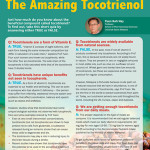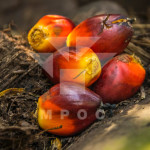3 Interesting Facts about Palm Oil
Palm oil is more nutritious than most people think.
- Crude palm oil is very rich in phytonutrients such as vitamin E tocotrienols (essential for the health of our nervous system due to their neuroprotective properties), carotenoids (pro-vitamin A, essential for our immune system and the development of our tissues and bones).
- Studies have shown that Vitamin A deficiency in children (which may cause poor development and even blindness) can be easily corrected by feeding them biscuits baked with red palm oil.
- Palm oil also contains squalene and palm phenolics. Recent animal studies showed palm phenolics to be good for controlling the onset of diabetes.
Palm oil contains saturated fats … which may not be so bad after all!
- Fats have always been a complex topic. In the late 1940s, the scientist Ancel Keys came out with the hypothesis that saturated fats are bad because they are linked to heart diseases. This hypothesis was based on a study which he claimed was conducted in seven countries. It was later found out that his study was conducted in more than 15 countries but he reported the results of only seven countries that fitted his hypothesis! Consequently, the hypothesis is challenged today.
- Today, we know the real culprits behind increased risk of heart diseases are trans fat and high-carbohydrate diets (especially carbohydrates with high glycemic index).
- Our palm oil is, in fact, a healthy oil. When used for deep frying, it is able to withstand degradation better than most edible oils. Moreover, at least three studies involving humans have shown that it is comparable to olive oil in terms of cardiovascular risk outcomes (cholesterol profiles).
The palm oil is good for our economy.
The palm oil industry – from palm oil cultivation, production, to processing of cooking oil as well as down processing of downstream oleochemical and household products – has created plenty of job opportunities. Our export earnings from palm oil and related products have served our economy well.
Also, palm oil is affordable. As the world population grows, there may be a shortage of edible oils in the near future. Our palm oil is going to be the solution to this problem. HT
But what about the rainforests?
Malaysia has allocated, under tight controls, only a limited amount of land for agriculture to minimise deforestation. Currently, there are no plans to expand. Instead, higher-yielding oil palm trees are replanted on existing plantations to increase their yield. There are also programmes, such as the animal rescue unit in Sabah, to ensure sustainable and good agriculture practices as well as minimal harm to our flora and fauna
Professor Yuen Kah Hay
School of Pharmaceutical Sciences
Universiti Sains Malaysia
This article appeared in HealthToday February 2016










Leave a Reply